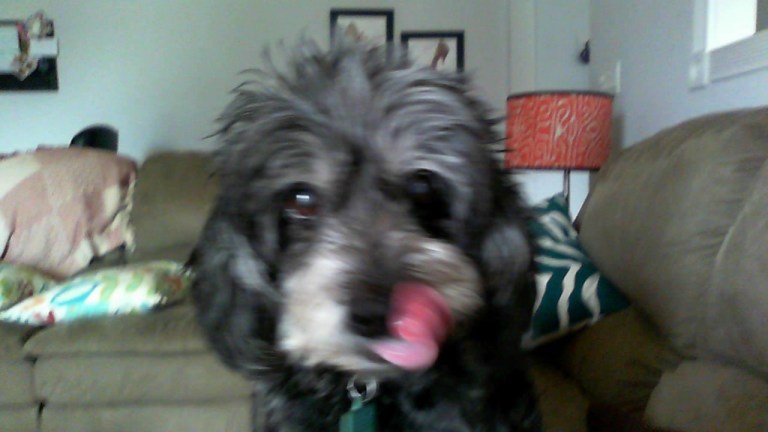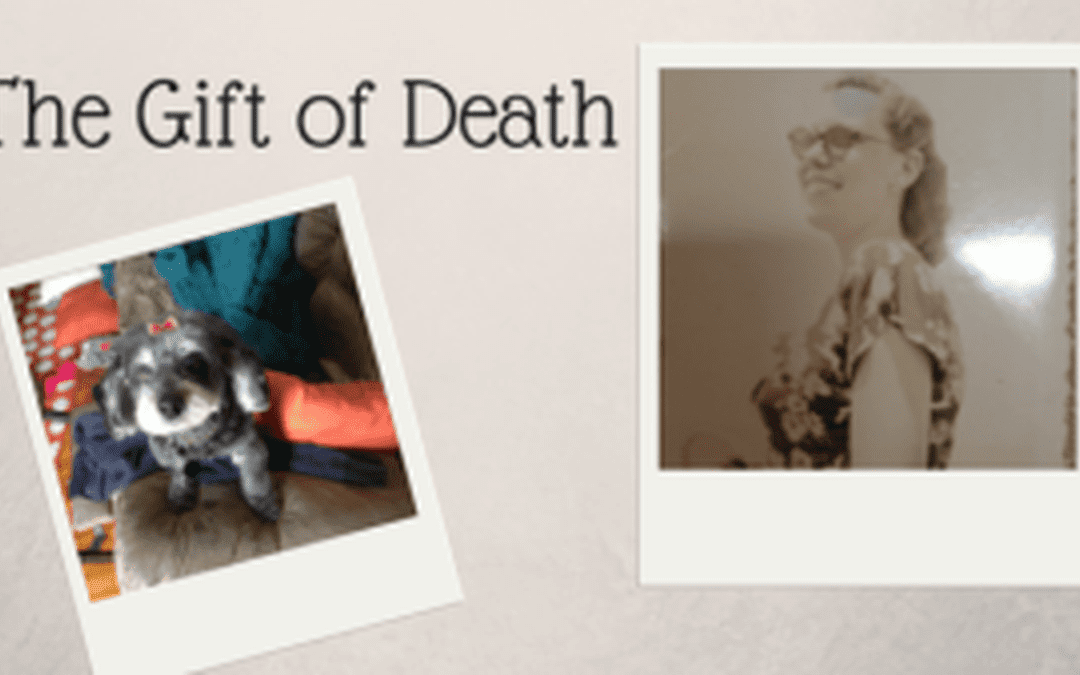“This must be the hardest part of your job.”
It’s a common refrain when I perform a euthanasia. In many ways it is. Death takes an enormous emotional toll and there are days when I long for the banality of a schedule full of wellness exams. But in some ways, euthanasia can also be one of the easiest parts of the job.
When I am presented with a pet who has had a life well lived, with a family to love them and miss them when they’re gone; when I see the suffering in their eyes, I feel the oath that I took—to relieve that suffering—in the core of who I am. When I watch the pain and fear be released from their body, I am privileged to have been entrusted with such an important moment.
But empathy for another’s loss is the easy part. When it is your own grief, acceptance is much harder to come by.
Not long ago my dog, Maddie, despite my best efforts and the efforts of an excellent veterinary oncologist, lost a short and difficult battle with breast cancer. I had made a promise to her after her diagnosis—to always put her first, and make every decision with her best interests at heart. I said it aloud, I repeated it often.

Her last few days were hard. She suffered from neck pain and her breathing was labored despite normal x-rays. I did my best to alleviate her pain, hoping that it wasn’t as serious as I knew in my heart it was. Eventually I would come to realize that she had developed DIC, a bleeding disorder that was sending clots to her lungs and spine.
As she continued to deteriorate, the knowledge of what I had to do kept forcing its way through my denial. I held her in my arms, oxygen flowing into her nose through a cannula. I wept so hard as she gasped for air, that all I could do was try to send telepathic messages to my colleague to tell her that it was time. I held Maddie in my arms until she went limp from the sedative, balling the entire time, and felt her breathing calm as she slipped away.
In the days afterward, people would try to comfort me by telling me I’d done the right thing. Their condolences were appreciated and valued, but those specific words were of little meaning. I already knew I’d done the right thing. Maybe I could have come to the decision a couple of days earlier but in the end, every decision was the one I truly felt was in her best interest, even the decision to die. I still cried, I still grieved. I still miss her every day. But my grief is for my loss, not hers. My grief is selfish, but I believe that is okay because my choices were not.
A week after Maddie’s passing, I received a call from my grandmother’s nursing home. She had been taken to the hospital with pneumonia. She was also severely anemic. My Nanny, being the fighter that she was, fought this too. Just as she had fought through two strokes that had left her incapacitated and unable to speak. Just as she’d fought through the death of her husband, and a few years later her own son. Nanny was a fighter. She stayed strong for the family that was left. She was the most selfless person I have ever known.

But when she got back to the nursing home, she was different. When my family visited her on Mother’s Day, Nanny just sat in her chair. She refused to eat, she refused to drink, and she refused to take any medication even to ease her pain. Some people might have thought that she had given up. They may have looked at her and decided that her fight was gone. It wasn’t. She just wasn’t fighting for the same things anymore. She wasn’t fighting for us, she was fighting for herself. When the nurse tried to put in an IV line to help with her dehydration my grandmother kicked and she bit and she fought for what she wanted—death.
And so, in my last moments alone with her, I tried to reassure her. I told her that I loved her. I told her that as her family we were scared and sad, but that this wasn’t about us. This was about her, and it was alright for her to put her own desires first. She wanted to go be with her god, her husband and her son, and that was what she should do. A few days later I got the news. Her death adds to my heavy heart.
Our family won’t be the same without her but I take solace knowing that her death was good and right and well deserved. I can be sad for my loss and happy that after over a decade of pain, heart-break and sorrow, that Nanny is finally at peace.
It can be hard to understand how death can be a good thing. As doctors we dedicate our lives to fending it off. Death is the enemy. And yet I have seen, over and over again, that moment when a dying animal welcomes the serenity of oblivion. I have seen the peace it can bring to tell a dying woman it is okay to die. Death is hardest for those of us left behind to continue living, but for those who are ready to move on death is not some formidable foe to rail against, it is a gift.

